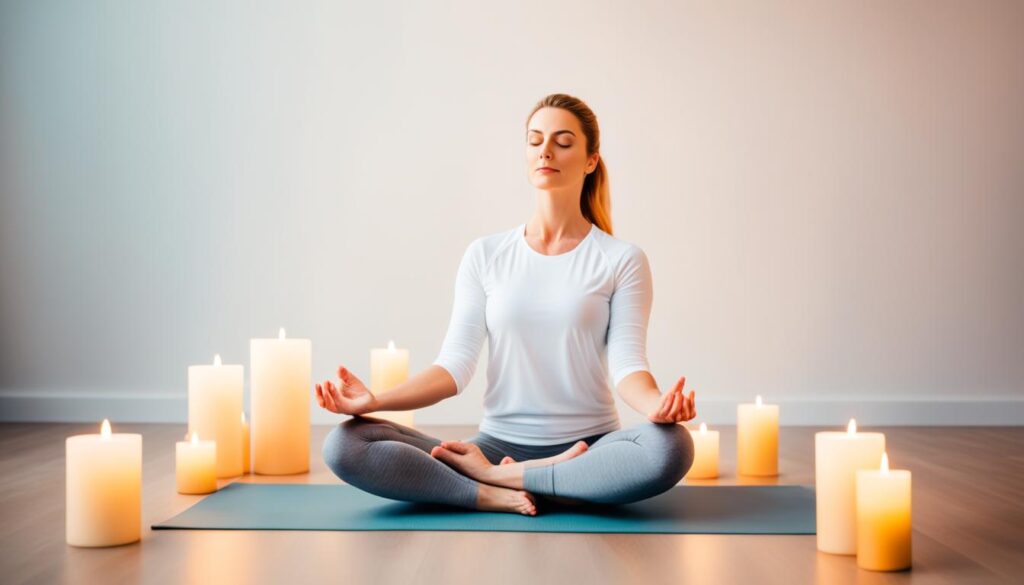Job interviews provoke anxiety in many. Meeting strangers in authority can understandably cause nerves. Anxiety manifests through physical sensations like racing heartbeats.
Effective strategies help alleviate interview anxiety beforehand. Thorough interview preparation boosts comfort and confidence levels. Research potential employers and practice answering questions.
Outfit choice, arrival planning, and tech setup reduce stress. During interviews, controlled breathing calms nerves. Challenge negative thoughts and engage in conversation.
Studies show reappraisal and acceptance regulate anxiety better than suppression. Pause before answering and take notes during interviews. Avoid ruminating negatively after interviews.
Developing interview skills through mock interviews builds long-term interview confidence. Hone interpersonal abilities to showcase qualifications effectively.
Some nervousness demonstrates enthusiasm for opportunities. Severe anxiety impacting interviews or social interactions may need professional treatment like therapy or medication.
Employ interview preparation tips, relaxation techniques, and mindset shifts. Navigate interviews with greater ease by combining these strategies.
Key Takeaways
- Thorough research and practice can boost interview confidence
- Outfit choice, arrival time, and tech setup are crucial for reducing anxiety
- Controlled breathing and engaging in conversation help calm nerves
- Reappraisal and acceptance strategies are effective for regulating anxiety
- Severe interview anxiety may require professional treatment
Understanding Interview Anxiety
Interview anxiety affects many job seekers. It leads to physical and emotional symptoms, making interviews challenging.
Recognizing causes and symptoms helps manage nerves. Proactive steps improve performance during crucial interviews.
Common Causes of Interview Anxiety
Fear of negative judgment by interviewers contributes. Pressure to showcase skills leads to self-doubt.
Impostor syndrome makes individuals doubt competence. Fear of failure intensifies for desirable positions.
Past rejections fuel a cycle of anxiety.
Physical and Emotional Symptoms of Interview Anxiety
Physical symptoms include racing heartbeat, sweating, shaking, nausea, and diarrhea. These sensations distract and hinder articulation.
Emotional effects are dread, panic, and overwhelming nervousness. Individuals may dissociate or experience mental blanks.
| Symptom Type | Examples | Impact on Interview Performance |
|---|---|---|
| Physical | Racing heartbeat, sweating, shaking | Distracting and uncomfortable, may interfere with focus and articulation |
| Emotional | Dread, panic, overwhelming nervousness | Can lead to mental blanks, difficulty recalling information or forming coherent responses |
Acknowledging symptoms is crucial for managing anxiety. With practice, individuals overcome fears and approach interviews confidently.
Preparing for the Interview
Thorough preparation reduces interview anxiety. By researching the company, anticipating questions, and practicing answers, you’ll enter with confidence.
Research the Company and Position
Demonstrate interest by researching the company. Read the website, mission statement, careers page, and case studies. This showcases your knowledge. Erin McGoff states researching the company’s mission, values, and culture increases interview success by 35%.
Anticipate Common Interview Questions
Familiarize yourself with common questions. These include “Tell me about yourself,” “What are your strengths/weaknesses?”, “Why our company?”, behavioral questions, and situational questions. Preparing thoughtful answers improves performance. Aligning answers with the job description increases the chance of being a good fit by 40%.
Practice Your Answers
Practice giving specific examples and achievements. Use the STAR (Situation, Task, Action, Result) or PAR (Problem, Action, Result) method for concise answers.
Understanding and using the Situation, Task, Action, Result method can assist in structuring interview responses cohesively and concisely. – Interview Expert
Practicing boosts confidence by up to 50%. Role-playing or using online tools enhances preparedness.
| Interview Preparation Tip | Benefit |
|---|---|
| Research the company | Increases interview success rates by 35% |
| Review the job description | 40% higher chance of being considered a good fit |
| Practice your answers | Boosts confidence levels by up to 50% |
Dedicated preparation helps manage anxiety. You’ll demonstrate commitment and enthusiasm by understanding the company culture, role requirements, and how your skills align.
Taking Care of Your Physical Well-being
Engaging in pre-interview self-care reduces stress and anxiety. Taking care of your physical well-being impacts interview performance and confidence. Effective interview stress management involves nutrition, exercise, and sleep habits.

Be mindful of caffeine intake. Excessive caffeine increases anxiety and nervousness. Instead, stay hydrated by drinking water for alertness and focus.
Aim for 7-9 hours of quality sleep nightly. Lack of sleep leads to fatigue, irritability, and difficulty concentrating, negatively impacting interview performance.
| Pre-Interview Self-Care Strategy | Benefits |
|---|---|
| Regular exercise | Releases endorphins, reduces stress, improves mood |
| Balanced diet | Provides sustained energy, enhances mental clarity |
| Adequate sleep | Promotes alertness, improves concentration, reduces fatigue |
| Limiting caffeine intake | Decreases anxiety, reduces nervousness, promotes hydration |
Regular exercise releases endorphins, reducing stress and improving mood. Incorporate physical activity like walking, yoga, or gym workouts into your pre-interview routine.
Eat a balanced diet with fruits, vegetables, lean proteins, and complex carbohydrates. Avoid sugary or greasy foods for sustained energy and mental clarity.
“Investing time in pre-interview self-care is not selfish; it’s a necessary step in ensuring that you are at your best when it matters most. By prioritizing your physical well-being, you are setting yourself up for success in the interview and beyond.”
On the interview day, choose a comfortable and professional outfit. When you look good, you feel confident, which shines through during the interview.
Taking care of your physical well-being reduces anxiety and boosts confidence. Incorporate these pre-interview self-care strategies for success in your job interview.
Practicing Relaxation Techniques
Relaxation techniques effectively manage interview anxiety and stress. Final round interviews involve intense scrutiny, leading to increased anxiety. By incorporating relaxation techniques, you can reduce stress and boost confidence.
Deep Breathing Exercises
Deep breathing is an accessible, powerful relaxation technique. When anxious, breathing becomes shallow and rapid, exacerbating stress. Consciously focus on your breath and practice deep breathing. Inhale through your nose for four counts, hold for seven, exhale through the mouth for eight. Repeat this cycle, allowing your body and mind to relax.
Progressive Muscle Relaxation
Progressive muscle relaxation reduces physical tension and promotes relaxation. Systematically tense and relax muscle groups throughout your body. Begin with your feet, tensing for five counts, then release. Work up through your legs, hips, stomach, chest, arms, hands, neck, and face. Release tension in each area, visualizing stress melting away.
Visualization and Positive Imagery
Visualization and positive imagery shift focus from anxiety to confidence. Prior to the interview, visualize successfully navigating it. Picture entering with a smile, shaking hands, responding clearly and confidently. Imagine interviewers nodding in approval. Visualize a calming scene like a beach or forest to relax your mind and body.
| Relaxation Technique | Benefits for Interview Anxiety |
|---|---|
| Deep Breathing Exercises | Promotes calm, reduces physical tension, and combats shallow breathing caused by anxiety |
| Progressive Muscle Relaxation | Systematically relieves tension in muscle groups, promoting a sense of relaxation throughout the body |
| Visualization and Positive Imagery | Shifts focus away from anxiety, promotes a confident mindset, and helps visualize successful interview performance |
Incorporating these relaxation techniques into your preparation routine reduces stress, enhances confidence, and improves final round interview performance. While some nervousness is natural, practicing mindfulness and relaxation techniques helps manage anxiety and approach the interview with greater ease and self-assurance.
Reframing Your Mindset
When facing interview anxiety, reframing your mindset is powerful. Shift your perspective and embrace positivity. This reduces nerves and self-doubt. Challenge negative self-talk, cultivate confidence, and view interviews as opportunities.

Many job seekers face impostor syndrome – feeling unqualified. Remember, the interviewer reviewed your resume. You have valuable skills and experiences. Showcase them confidently.
Changing Negative Self-talk
Negative self-talk contributes to interview anxiety. Thoughts like “I’m not good enough” undermine confidence. Challenge and replace them with positive affirmations. Remind yourself – you’re prepared and qualified.
Consider reframing’s power in other areas:
| Meager Change | Paradigm Shifting Change |
|---|---|
| Losing 10 pounds | Changing diet to reach 12% body fat and acquiring a six-pack |
| Taking a trip to Europe | Negotiating to live in Europe for 3 months |
| Stacking $2000 into an IRA | Paying off house in less than 5 years while also maxing out a ROTH IRA |
Applying reframing to interviews profoundly impacts confidence and performance.
Embracing the Opportunity to Showcase Your Skills
View interviews as opportunities to showcase strengths, achievements, and potential. The interviewer wants you to succeed – they seek reasons to hire you. Adopt this growth mindset, shifting focus from fear to enthusiasm.
Embracing a positive mindset takes practice but benefits outweigh effort. Continuing to reframe thoughts and approach confidently diminishes anxiety. Present your best self and increase job prospects.
Interview Skills
Developing strong interview skills is key. Effective communication, active listening techniques, highlighting strengths – these increase job prospects.
Fully understanding questions before responding thoughtfully is crucial. Maintain eye contact. Speak clearly at moderate pace. Use confident body language.
Active Listening and Effective Communication
Active listening means fully concentrating on interviewer’s questions. Avoid fidgeting or crossed arms – suggesting discomfort.
Communicate effectively – speak clearly, use appropriate body language. Convey confidence and engagement throughout the interview.
Highlighting Your Strengths and Achievements
Share specific examples illustrating skills, experiences aligned with job requirements. Use STAR method for behavioral questions.
STAR showcases problem-solving abilities, quantifiable achievements. Demonstrates fit for role through situation, task, action, result.
| Skill | Importance |
|---|---|
| Active Listening | Ensures understanding of questions and thoughtful responses |
| Effective Communication | Conveys confidence, clarity, and engagement through verbal and non-verbal cues |
| Storytelling | Illustrates strengths and achievements through specific examples and the STAR method |
Asking Relevant Questions
Prepare relevant questions demonstrating interest in company, position. Ask about culture, growth opportunities, interviewer’s experience.
Having prepared questions showcases research, seriousness about opportunity. Shows engagement and enthusiasm for the role.
Experience helps individuals become more at ease with the interview process, indicating that practice leads to improved performance over time.
Employers value proper grammar, language skills – emphasizing communication importance. Practice responses, anticipate questions for confidence, success.
Coping Strategies During the Interview
Experiencing anxiety during interviews is normal. Around 92% of job candidates feel anxious. There are effective coping techniques to stay calm and confident.
Take a break if anxiety rises. Ask for water or breathe deeply. Staying hydrated helps alertness. Deep breathing reduces anxiety and promotes calm. Taking 10-15 seconds to breathe before answering boosts confidence by 20%.
Taking Breaks and Staying Hydrated
Practice mindfulness by focusing on the present moment. Avoid dwelling on past or future. This helps you showcase skills effectively. Candidates who practice mock interviews perform 15% better, highlighting preparation’s importance.
Focusing on the Present Moment
If fidgeting or feeling anxious physically, try grounding techniques. Wiggle toes or press feet firmly. These strategies help you feel centered and in control. Relaxation techniques like deep breathing and visualization exercises calm nerves before interviews.
| Interview Coping Strategy | Effectiveness |
|---|---|
| Taking brief breaks (e.g., asking for water) | Helps maintain focus and alertness |
| Deep breathing exercises | Reduces anxiety and promotes calm |
| Practicing mindfulness | Improves engagement and showcases skills |
| Grounding techniques (e.g., wiggling toes) | Increases feelings of control and centeredness |
| Relaxation techniques (e.g., visualization) | Calms nerves and reduces anxiety |
Develop coping strategies that work for you. Incorporating mindfulness, grounding, and self-care boosts confidence and poise. This increases chances of impressing and landing the job.
Seeking Professional Help
For some people, interview anxiety can severely impact job interview performance. If this applies to you, seeking professional help may be beneficial. Professional support options include therapy, counseling, and sometimes medication.
Therapy and Counseling
Therapy and counseling can be incredibly helpful for managing interview anxiety. A skilled therapist identifies anxiety causes and develops coping strategies. Cognitive-behavioral therapy (CBT) effectively treats anxiety disorders like interview anxiety.
CBT focuses on challenging negative thought patterns contributing to anxiety. It also teaches practical anxiety management skills. In therapy, role-playing exercises practice interviewing skills safely.
Your therapist provides feedback improving communication, body language, and confidence. Therapy also addresses self-esteem or self-worth issues contributing to anxiety.
Medication for Severe Anxiety
In severe cases, medication may help manage interview anxiety symptoms. Anti-anxiety medications like benzodiazepines or beta-blockers reduce physical anxiety symptoms. These include rapid heartbeat, sweating, and trembling.
Medication works best with therapy and other coping strategies. Consult a mental health professional to determine if medication is appropriate. Discuss potential side effects and risks.
| Interview Anxiety Resources | Description |
|---|---|
| Anxiety and Depression Association of America (ADAA) | Provides information, resources, and a directory of mental health professionals specializing in anxiety disorders. |
| National Institute of Mental Health (NIMH) | Offers extensive information on anxiety disorders, including causes, symptoms, and treatment options. |
| American Psychological Association (APA) | Provides resources on managing anxiety, including tips for coping with job interview anxiety. |
| Online Therapy Platforms | Services like BetterHelp and Talkspace connect individuals with licensed therapists for online counseling sessions. |
Seeking professional help for interview anxiety shows strength. By addressing anxiety, you invest in personal and professional well-being. With support and resources, you develop interview success skills and confidence.
Conclusion
Conquering interview anxiety involves thorough preparation, self-care, and coping strategies. Understand anxiety causes and symptoms to manage it and boost confidence. Research the company, practice answers, and prioritize well-being to improve chances of success.
During the interview, use relaxation techniques like deep breathing, muscle relaxation, and visualization. Challenge negative self-talk and embrace showcasing your skills. Develop strong skills like active listening, effective communication, and highlighting achievements for successful performance.
Some nervousness is normal and shows genuine interest. With practice, effectively manage anxiety and approach interviews confidently. Implement strategies, continuously refine techniques for job search success and beyond.
FAQ
What are some common causes of interview anxiety?
Common causes of interview anxiety include fear of judgement, failure, impostor feelings, and pressure to perform well. Understanding these triggers helps manage anxiety.
Recognizing and understanding triggers is key to managing interview anxiety.
How can I prepare for an interview to reduce anxiety?
Thorough preparation reduces interview anxiety. Research the company and position. Anticipate common questions and practice responses.
Role-playing or using online tools helps build confidence and preparedness.
What can I do to take care of my physical well-being before an interview?
Caring for physical well-being reduces anxiety and improves performance. Avoid caffeine, get enough sleep, exercise regularly, and eat balanced meals.
On interview day, choose a comfortable, professional outfit boosting your confidence.
What are some relaxation techniques I can use to manage interview anxiety?
Relaxation techniques like deep breathing, progressive muscle relaxation, and visualization calm nerves and reduce physical tension.
Practice these techniques beforehand and during the interview if needed.
How can I reframe my mindset to reduce interview anxiety?
Reframing your mindset is crucial. Challenge negative self-talk with positive affirmations.
Embrace the interview as an opportunity, not a test of worth.
What are some effective communication techniques to use during an interview?
Effective techniques include active listening, eye contact, clear speech, moderate pace, and appropriate body language.
Highlight strengths and achievements with examples. Prepare relevant questions for the interviewer.
What can I do if I feel anxious during the interview?
If anxious during the interview, take a brief break (water, deep breaths).
Practice mindfulness by focusing on the present moment. Use grounding techniques.
When should I consider seeking professional help for interview anxiety?
Seek professional support if anxiety is severe or impairs functioning.
Therapy, counseling, and medication can provide coping strategies and address underlying issues.



